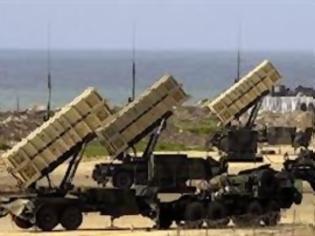The United States blacklisted a Greek business executive and 14 of his companies on Thursday, accusing them of conspiring with Iran to acquire eight large petroleum tankers used to transport Iranian oil to unwitting foreign customers in defiance of Western economic sanctions.
It was one of the largest efforts to evade sanctions cited by the United States concerning Iran, which is confronting an increasing array of Western economic penalties over its disputed nuclear program.
The Treasury and State Departments said in an announcement that the eight tankers, capable of carrying roughly $200 million worth of oil per shipment, are really owned by Iran and not the network of trading companies operated by the Greek executive, Dimitris Cambis.
The announcement said Mr. Cambis had established the companies to acquire the tankers for Iran, masking its identity to skirt the sanctions, which have reduced the country’s ability to export oil, a critical part of the Iranian economy.
“Today we are lifting the veil on an intricate Iranian scheme that was designed to evade international oil sanctions,” David S. Cohen, the Treasury’s under secretary for terrorism and financial intelligence, said in the announcement.
The sanctions apply to Mr. Cambis, the eight tankers and what the statement described as 14 front companies acting on behalf of the National Iranian Oil Company and the National Iranian Tanker Company. Both have already been blacklisted.
Under American sanctions laws, blacklisted people and entities are generally prohibited from engaging in any transactions with Americans, and any assets they may have under United States jurisdiction are frozen.
“We will continue to expose deceptive Iranian practices, and to sanction those individuals and entities who participate in these schemes,” Mr. Cohen said.
Iran’s state news media made no mention of the announcement, and attempts to reach Mr. Cambis for comment were not immediately successful.
Last month, when news reports implicating him first surfaced, he denied such a collaboration with Iran.
Reuters reported on Feb. 26 that Mr. Cambis had spent about $204 million in 2012 to acquire the tankers, and that Iranian tankers had transferred their oil to these vessels on the high seas. These so-called ship-to-ship or S.T.S. transfers are difficult to monitor.
Mr. Cambis was quoted by Reuters as saying that the tankers were for a venture managed from the United Arab Emirates, and that “there is no Iranian vessel that has done any S.T.S. with us.”
Two senior American officials who briefed reporters about the sanctions said they had ample evidence to justify the action taken against Mr. Cambis, describing his activities as part of a wider effort by Iran to evade the sanctions.
“We are confident in our information,” said one official, who spoke on the condition that they not be further identified.
The announcement came a day after the International Energy Agency, a 28-nation group of oil importers, said in a widely watched survey that Iran’s oil exports rose in February, despite the imposition of new American sanctions intended to further limit the country’s ability to sell oil. The officials said it was unclear whether the eight tankers identified in Thursday’s announcement were partly responsible for the increase in the Iranian exports. They also declined to specify the intended customers of the oil. But they acknowledged that the tankers carried a significant quantity.
“That’s why we’re glad we put an end to this way of evading sanctions,” one official said.
It was one of the largest efforts to evade sanctions cited by the United States concerning Iran, which is confronting an increasing array of Western economic penalties over its disputed nuclear program.
The Treasury and State Departments said in an announcement that the eight tankers, capable of carrying roughly $200 million worth of oil per shipment, are really owned by Iran and not the network of trading companies operated by the Greek executive, Dimitris Cambis.
The announcement said Mr. Cambis had established the companies to acquire the tankers for Iran, masking its identity to skirt the sanctions, which have reduced the country’s ability to export oil, a critical part of the Iranian economy.
“Today we are lifting the veil on an intricate Iranian scheme that was designed to evade international oil sanctions,” David S. Cohen, the Treasury’s under secretary for terrorism and financial intelligence, said in the announcement.
The sanctions apply to Mr. Cambis, the eight tankers and what the statement described as 14 front companies acting on behalf of the National Iranian Oil Company and the National Iranian Tanker Company. Both have already been blacklisted.
Under American sanctions laws, blacklisted people and entities are generally prohibited from engaging in any transactions with Americans, and any assets they may have under United States jurisdiction are frozen.
“We will continue to expose deceptive Iranian practices, and to sanction those individuals and entities who participate in these schemes,” Mr. Cohen said.
Iran’s state news media made no mention of the announcement, and attempts to reach Mr. Cambis for comment were not immediately successful.
Last month, when news reports implicating him first surfaced, he denied such a collaboration with Iran.
Reuters reported on Feb. 26 that Mr. Cambis had spent about $204 million in 2012 to acquire the tankers, and that Iranian tankers had transferred their oil to these vessels on the high seas. These so-called ship-to-ship or S.T.S. transfers are difficult to monitor.
Mr. Cambis was quoted by Reuters as saying that the tankers were for a venture managed from the United Arab Emirates, and that “there is no Iranian vessel that has done any S.T.S. with us.”
Two senior American officials who briefed reporters about the sanctions said they had ample evidence to justify the action taken against Mr. Cambis, describing his activities as part of a wider effort by Iran to evade the sanctions.
“We are confident in our information,” said one official, who spoke on the condition that they not be further identified.
The announcement came a day after the International Energy Agency, a 28-nation group of oil importers, said in a widely watched survey that Iran’s oil exports rose in February, despite the imposition of new American sanctions intended to further limit the country’s ability to sell oil. The officials said it was unclear whether the eight tankers identified in Thursday’s announcement were partly responsible for the increase in the Iranian exports. They also declined to specify the intended customers of the oil. But they acknowledged that the tankers carried a significant quantity.
“That’s why we’re glad we put an end to this way of evading sanctions,” one official said.












